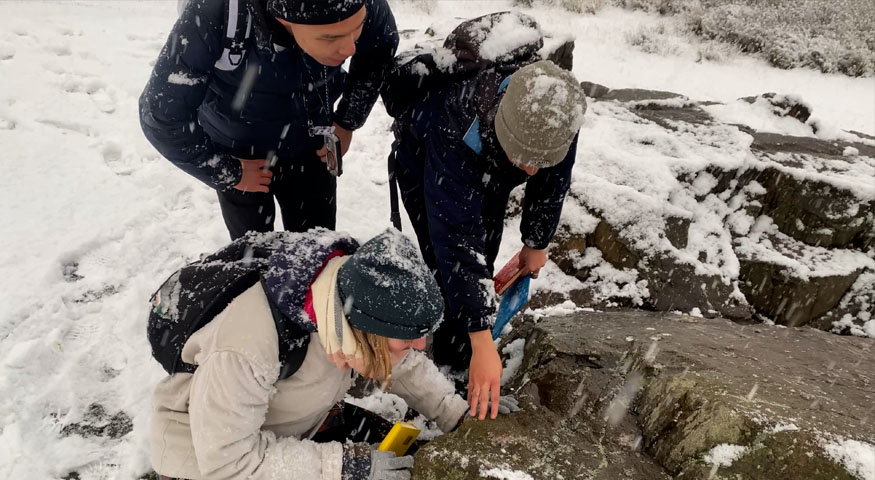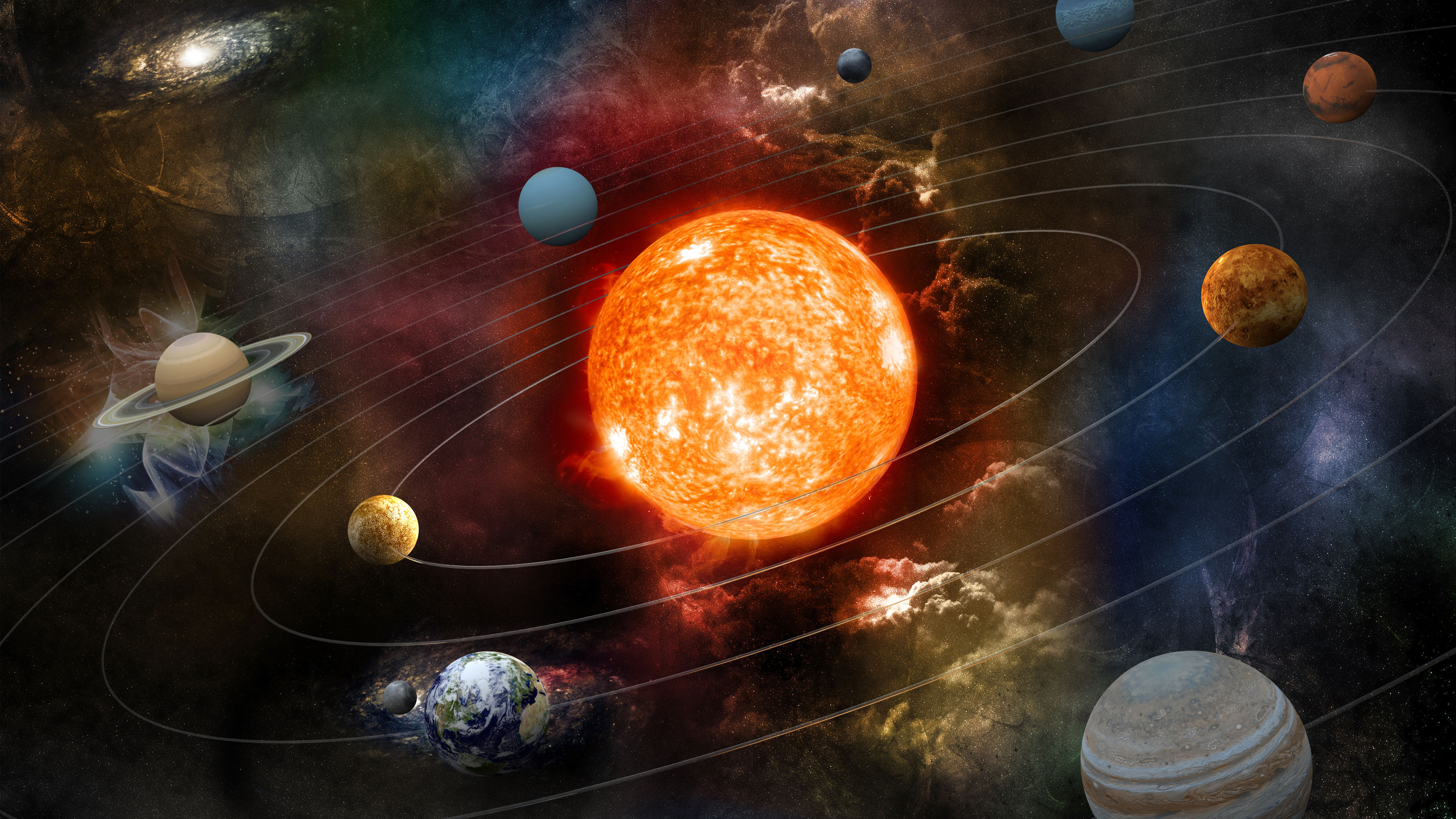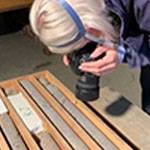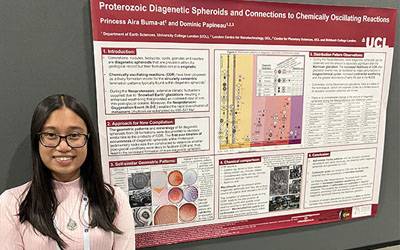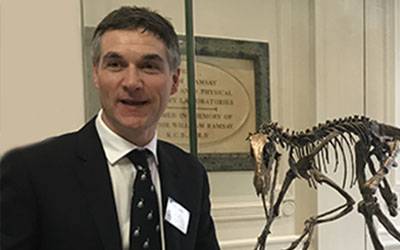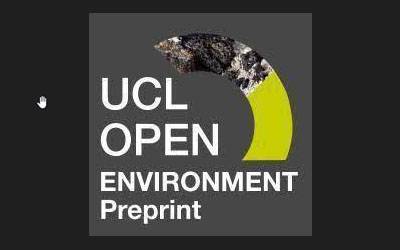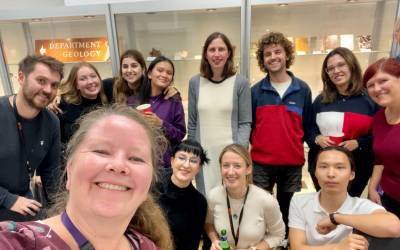Departmental Newsletter Autumn 2022
Student Experience: Thanks for all the geology!
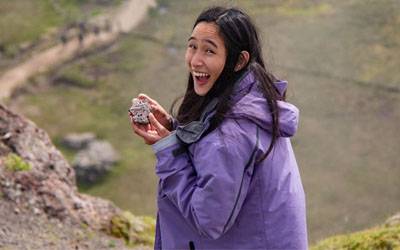
Through my time at UCL, I’ve developed a passion for sustainability, climate change & a fascination for Arctic sea ice dynamics, solar geo-engineering & of course, geology!
Meet: The Crystallography & Mineral Physics group
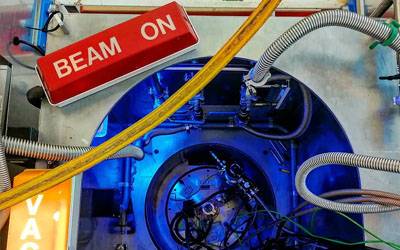
We research the composition, structure, dynamics and evolution of the Earth and terrestrial planets using experimental & computational techniques.
Fieldwork: Monitoring the “Seismic swarm”
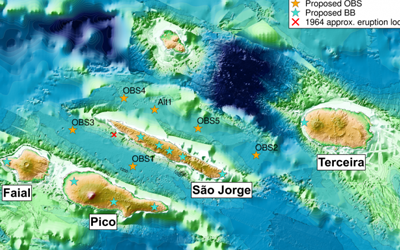
As part of the NERC emergency grant, we undertook an expedition to deploy 10 seismometers to monitor Azores seismic activities.
Research: Report from GSA 2022 meeting
I was incredibly fortunate to attend the GSA Connects 2022 Meeting in Denver, Colorado to present my poster the New Advances in Geobiology session.
Events: International Day of Persons with Disabilities
Non-disabled academics must fight prejudice and increase the support to, and visibility of, physically impaired colleagues.
Research: Is London ready for upcoming low reservoir levels?
We need to think about water resources from a new perspective that is based on looking to develop adaptive management plans.
Events: Women in Earth Sciences highlights
Our group continues to grow and thrive. Now with nearly 40 members, we run a series of events for anyone interested.
Equality: Someone like me

Reflections by UCL Earth Sciences Network for Ethnic Diversity on two Black History Month 2022 events.
Outreach: Doing a Reddit ask me anything IAmA
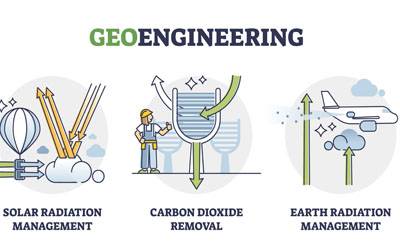
Solar geoengineering could substantially reduce climate risks—A research hypothesis for the next decade.
Update from Prof Paul Upchurch, Head of Department.
As the Christmas holidays approach, and we all look forward to a well-deserved rest, it is interesting to look back on the past year and see how much things have changed. It is hard to believe that this time last year we were facing another wave of Covid as the omicron variant spread rapidly, and indeed we had to switch to online teaching for the last week of term. Since then, much has happened. We are now fully back to face-to-face teaching and field trips, social events have been taking place in the department, and we are no longer required to wear masks, carry out social distancing and so on.
One notable event was a very strong recruitment of undergraduate students this year. Our intake was 126 first-year students, a new record for the department. This has certainly created challenges in terms of finding appropriate teaching spaces and the additional workload for staff. On the other hand, it is very encouraging to see such an upsurge of interest in the Earth Sciences, and the extra income is useful in these financially challenging times.
The department continues to be a successful and vibrant place to carry out research. This year, we have hired four new lecturers and one new associate professor, who are either with us now or will join us in January 2023. We host seven NERC Independent research Fellows, one Royal society University Research Fellow, and one Dorothy Hodgkin Royal Society fellow, several of whom have permanent positions with us. There has been considerable success in attracting major grants this year, and it has been particularly pleasing to see younger and newer members of staff find their feet in this regard and start to bring in prestigious research grants. It was also gratifying to see that 63% of our research outputs were graded as “world leading” in the recent Research Excellence Framework Exercise.
Over the past year and a half, several long-standing members of the department have retired, including: Tim Atkinson, Willy Burgess, Adrian Jones, Dan Osborn, and Kevin Pickering. Juergen Thurow and Phil Meredith will also retire at the end of December, and Steve Edwards has obtained a new job in industry. Such a rapid turnover of staff makes this feel like the end of an era, and it is sad to see these people go. The good news, however, is that the retirees are now emeritus professors, and have plans to continue their work in the department including publishing papers and guiding PhD students through to completion. We are very grateful to all these people for their long and valuable service to the department over many years, and I am pleased to be able to say that we are organising an event to thank them and celebrate their many and varied contributions.
On a personal note, this is my last year as head of department, and in January we should know who will be taking over from me at the start of September 2023. But, this is my penultimate newsletter so I will look back on my experiences more fully in the spring/summer issue. In the meantime, I’d like to thank everyone in the department for all the hard work this year, and wish you all a very Merry Christmas and happy New Year.
 Close
Close


